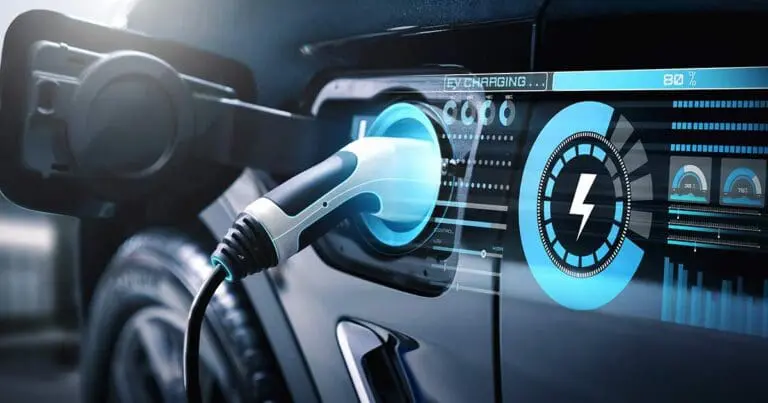Electric Vehicles (EVs): Job Creation and Changing Workforce Dynamics

In the ever-evolving landscape of technology and innovation, one industry continues to charge ahead, quite literally.
Electric Vehicles (EVs), once seen as a mere solution to reduce carbon emissions and combat climate change, are now poised to do so much more.
The concept of bidirectional charging has electrified the imaginations of industry experts, as it holds the potential to not only transport us from point A to point B but also power our homes and contribute to the grid.
As EVs revolutionize the way we perceive transportation, they also create a ripple effect extending far beyond our roads.
And amidst this dynamic shift, a host of exciting opportunities for workforce development and collaboration between utilities and the transportation sectors are emerging, paving the way for a bold and electrifying future.
What are Electronic Vehicles (EVs)?
Electric Vehicles (EVs) operate on electric motors, utilizing energy stored in rechargeable batteries as opposed to internal combustion engines running on fossil fuels.
These vehicles have proven to be effective in reducing carbon emissions, marking a significant step towards environmental sustainability.
However, with the concept of bidirectional charging, EVs hold far more potential than pure transportation.
They could potentially serve as mobile power storage units, capable of supplying electricity back to the power grid or our homes when needed, thereby transforming our understanding of vehicles and energy utilization.
What is bidirectional charging?
Bidirectional charging is an innovative technology that allows electric vehicles (EVs) to both take in electricity for charging and send it back to the power grid or home.
Essentially, EVs with this technology can function as mobile energy storage units.
Notably, Ford’s F150 Lightning and several of GM’s anticipated 2024 models are equipped with this game-changing technology, potentially revolutionizing energy use and storage.
Electronic vehicles and bidirectional charging job opportunity
EV and bidirectional charging job opportunities include skilled tech professionals, new career paths in EV and utilities, new role creation, increased job creation, and skills transfer among different sectors.
Skilled tech professionals in EV
The rise in electric vehicles and bidirectional charging technology has led to an increasing demand for skilled technology professionals.
These experts, adept in EV technology, energy storage, and power electronics, are at the helm of this evolving industry.
Consequently, this surge in demand provides an excellent opportunity for job creation and progress in the tech sector, fostering innovation and pushing the boundaries of what is currently feasible.
New career paths in EV and utilites
The crossover between energy and transportation industries, brought about by the advent of EVs and bidirectional charging, is creating new career paths.
These include roles in energy management, infrastructure planning, and grid optimization.
Such interdisciplinary roles will require a fusion of skills from both sectors, offering myriad opportunities for professionals to expand their skills and shape the future of sustainable transportation.
New roles in EV and utilities
Bidirectional charging and EVs will herald the creation of entirely new roles that we have yet to conceive.
Professionals will need to straddle the line between tech-savviness and an understanding of energy infrastructure, a fusion of skills that was not previously required.
This unprecedented intersection of industries will undoubtedly catalyze a new wave of innovation and job creation, pushing us further into a future where energy and mobility are inextricably linked.
Job creation in EV and utilities
The dawn of electric vehicles and bidirectional charging brings about a surge in job creation across various sectors.
This technological shift requires a workforce with combined skills in technology, energy storage, and transportation, creating new career opportunities and job roles.
Consequently, this industry evolution promotes global sustainability and bolsters economic growth through significant job creation.
Skills transfer among EV sectors
The collaboration between utilities and transportation sectors fosters workforce mobility and skill transfer, facilitating the exchange of knowledge and expertise.
Such integration allows professionals to leverage their skills in unfamiliar territories, thus opening up dynamic career pathways and opportunities for growth.
This cross-sector synergy ultimately fosters an adaptable and versatile workforce prepared to drive innovation in the era of electric vehicles and bidirectional charging.
Preparing the workforce for EV
Preparing the workforce for EV includes collaboration between industry and academia, providing upskilling opportunities, emphasizing the impact of clean energy, and leveraging staffing agencies.
Collaboration between industry and academia
As the EV and bidirectional charging technology continue to evolve, it is crucial to prepare the workforce with the necessary skills and knowledge.
This can be achieved through collaborative efforts between industry stakeholders and academic institutions offering EV technology training and education programs.
Upskilling opportunities for current professionals
With new roles emerging in the EV and utilities sector, it is essential to provide opportunities for current professionals to upskill and enhance their expertise in this evolving field.
This could be through workshops, training programs, or partnerships with specialized institutions.
Emphasizing the importance of clean energy
Strategies for employers in the utilities and transportation sectors to prepare their workforce for the shift towards EVs.
This includes creating awareness about the importance of clean energy and sustainability, encouraging employees to upskill in EV technology, and promoting a culture of innovation in this
Leveraging staffing agencies
Staffing agencies play a crucial role in sourcing and training talent for the burgeoning EV and utilities sector, underpinning the industry’s shift to clean energy.
They not only provide access to a vast pool of potential candidates but can also facilitate targeted training programs, helping professionals develop the unique blend of skills required in this rapidly evolving field.
The future of Electronic Vehicles (EVs) and job creation
The advent of electric vehicles (EVs) and bidirectional charging technology is a revolutionary step towards sustainable transportation and a game-changer in job creation and career transformations.
This paradigm shift necessitates concerted efforts from all industry stakeholders to adapt and leverage these changes seamlessly. Employers are urged to anticipate these evolving needs proactively, preparing the workforce to foster innovation and steer this technological revolution.
Employers are encouraged to utilize staffing agencies for strategic workforce planning and development, ensuring that the teams are equipped with the right skills to navigate this rapidly evolving landscape.
Keeping an ear to the ground about the latest trends, developments, and workforce needs in the EV technology sector is not just an option but a necessity to stay ahead. This is just the beginning, and the best way to predict the future is to create it. Let’s drive this revolution together.
Looking to hire top-tier Tech, Digital Marketing, or Creative Talent? We can help.
Every year, Mondo helps to fill over 2,000 open positions nationwide.
More articles about hiring and industry trends:
- Preparing For the Inevitable “Unretirement Wave” of 2024
- The Future of Clinical Trials: AI-Powered “Synthetic Patients”
- The Age of Gen Z Workforce: The Great Negotiation
- Addressing FOBO (Fear of Being Obsolete) in the Age of AI
- Specialized AI Bots and the Evolution Beyond ChatGPT
- 24 Top In-Demand Tech and IT Jobs to Hire in 2024, with Salaries
- Fractional Executives & C-Suite Gig Work Shaping the Employment Landscape
- Harnessing the Power of Climate Tech to Drive Environmental Sustainability
- Staffing Strategies For Each Phase of the Business Cycle
- Tapping the Gig Economy: When It Makes Sense to Hire Contractors
- What to Do When You Have Urgent Hiring Needs
- Generative AI & Its Impact on the Job Market: It’s Not All Bad News
- Lessons From Unicorn Companies: Hiring Strategies for Rapid Growth



